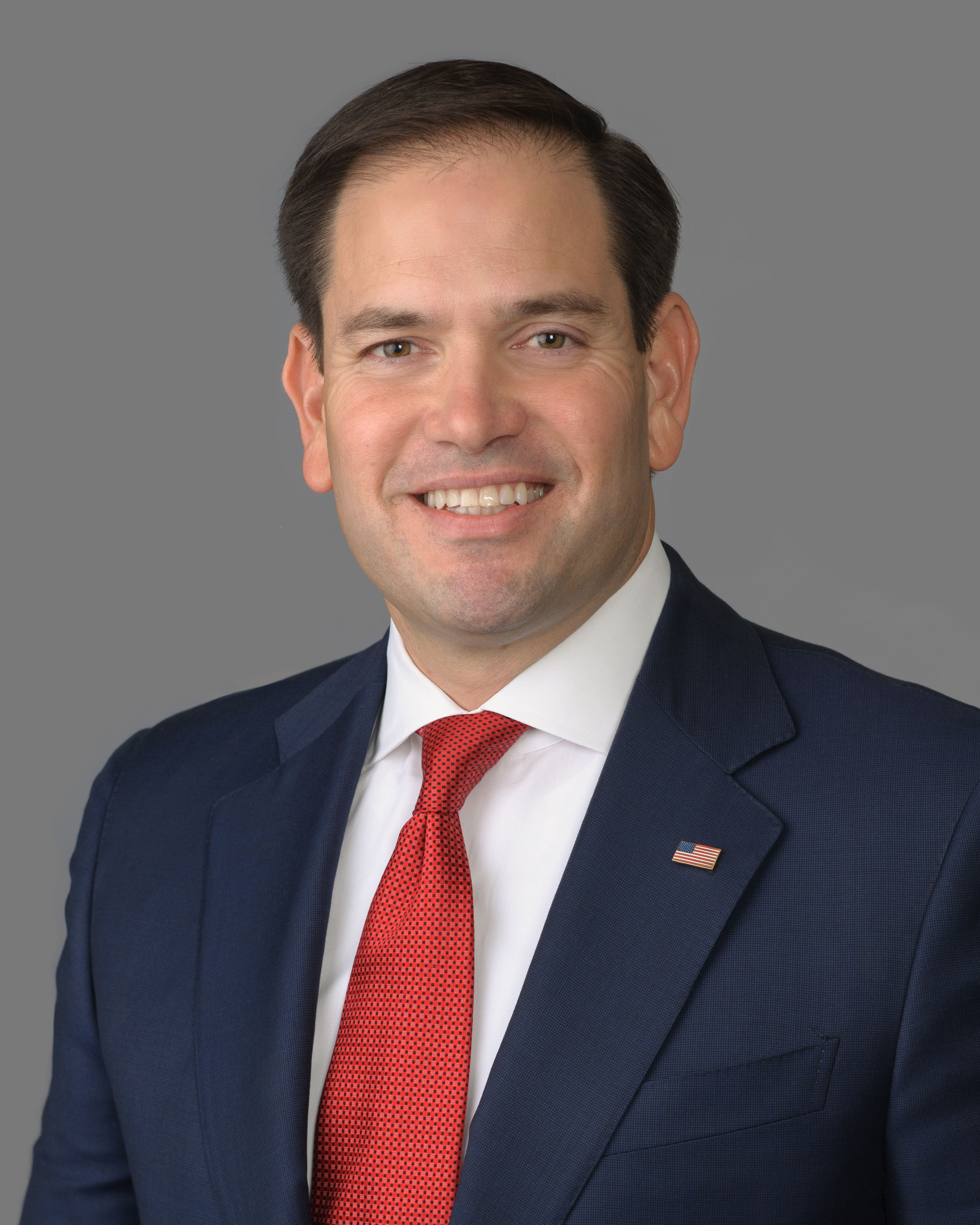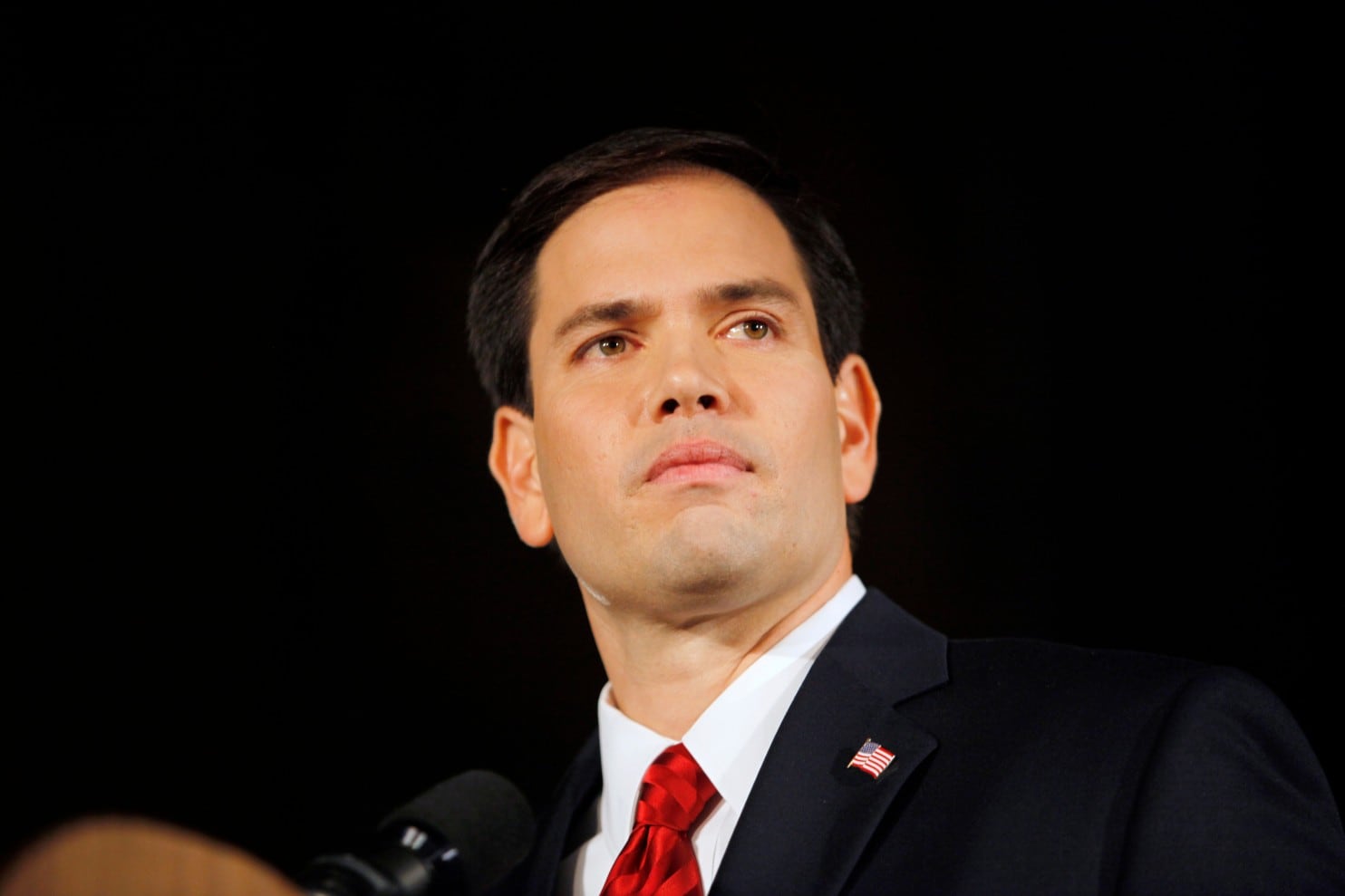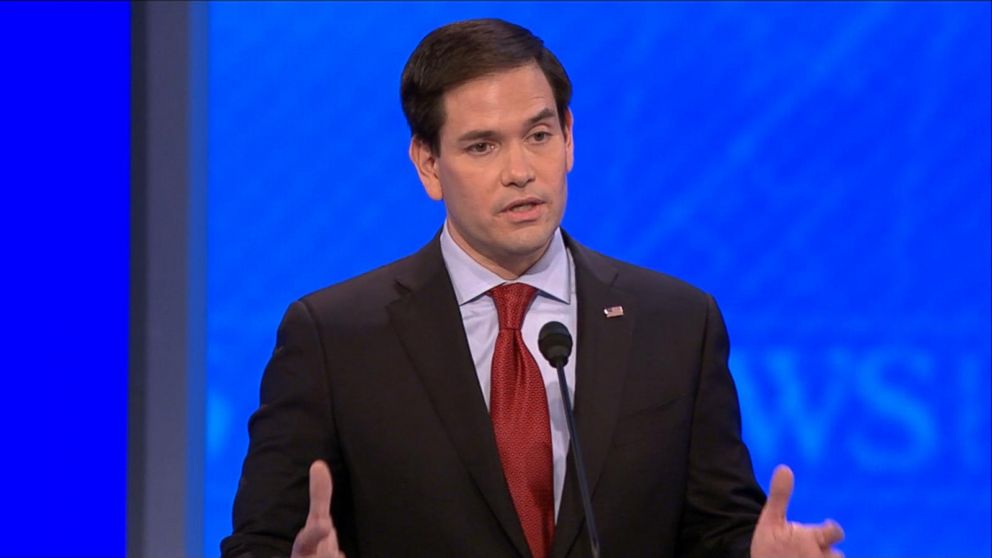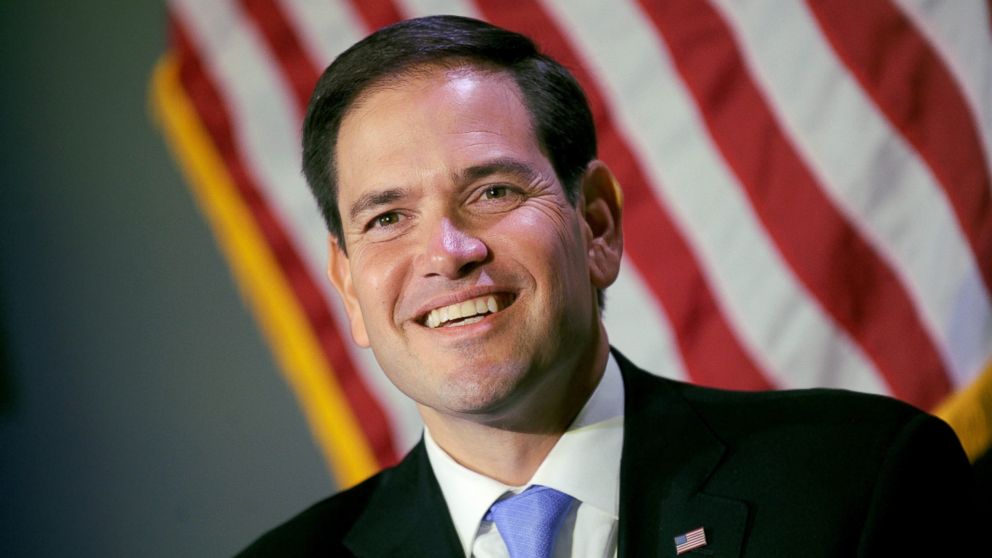
Marco Antonio Rubio is an American lawyer a nd politician serving as the senior United States senator from Florida, a seat he has held since 2011. A member of the Republican Party, he served as speaker of the Florida House of Representatives from 2006 to 2008. Rubio unsuccessfully sought the Republican nomination for president of the United States in 2016, winning presidential primaries in Minnesota, the District of Columbia, and Puerto Rico. Rubio is a Cuban American from Miami, Florida. After serving as a city commissioner for West Miami in the 1990s, he was elected to represent the 111th district in the Florida House of Representatives in 2000. Subsequently, he was elected speaker of the Florida House, and was Speaker for two years beginning in November 2006. Upon leaving the Florida legislature in 2008 due to term limits, Rubio taught at Florida International University. Rubio was elected to the United States Senate in 2010. In April 2015, he decided to run for president instead of seeking reelection to the Senate. He suspended his campaign for president on March 15, 2016, after losing the Florida Republican primary to the eventual winner of the presidential election, Donald Trump. He then decided to run for reelection to the Senate, winning a second term later that year. During the 2016 Republican presidential primary campaign in which Rubio and Trump were opponents, Rubio was critical of Trump. Rubio ultimately endorsed Trump before the 2016 general election and was largely supportive of Trump during his presidency. Due to his influence on U.S. policy on Latin America during the Trump administration, he was described as a "virtual secretary of state for Latin America”.

In late 1999, a special election was called to fill the seat for the 111th House District in the Florida House of Representatives, representing Miami. It was considered a safe Republican seat, so Rubio's main challenge was to win the GOP nomination. He campaigned as a moderate, advocating tax cuts and early childhood education. Rubio placed second in the Republican primary on December 14, 1999, but won the run-off election for the Republican nomination, defeating Angel Zayon by just 64 votes. He then defeated Democrat Anastasia Garcia with 72% of the vote in a January 25, 2000, special election In November 2000, Rubio won re-election unopposed. In 2002, he won re-election to a second full term unopposed. In 2004, he won re-election to a third full term with 66% of the vote. In 2006, he won re-election to a fourth full term unopposed. Rubio spent almost nine years in the Florida House of Representatives. Since the Florida legislative session officially lasted only sixty days, he spent about half of each year in Miami, where he practiced law, first at a law firm that specialized in land use and zoning until 2014 when he took a position with Broad and Cassel, a Miami law and lobbying firm.

In the first Republican primary, the February 1 Iowa caucuses, Rubio finished third, behind candidates Ted Cruz and Donald Trump. During a nationally televised debate among Republican candidates in New Hampshire on February 6, 2016, Rubio was criticized by rival Chris Christie for speaking repetitiously and sounding scripted. On February 9, when he placed fifth in the New Hampshire primary results, Rubio took the blame and acknowledged a poor debate performance. In the third Republican contest, the South Carolina primary on February 20, Rubio finished second, but did not gain any delegates as Trump won all of South Carolina's congressional districts and thus delegates.

Rubio initially won his U.S. Senate seat with strong Tea Party backing, but his 2013 support for comprehensive immigration reform legislation led to a decline in their support for him. Rubio's stance on military, foreign policy, and national security issues – such as his support for arming the Syrian rebels and for the NSA – alienated some libertarian Tea Party activists. Early in his Senate tenure, Rubio was involved in bipartisan negotiations to provide a pathway to citizenship for 11 million undocumented immigrants while implementing various measures to strengthen the U.S. border; the bill passed the Senate but was blocked by immigration hardliners in the House.

As the United States began to lock down in Spring 2020, Rubio created the Paycheck Protection Program to keep small businesses from going bankrupt and ensure employees could stay on payroll. More than 430,000 Florida small businesses received $32 billion in forgivable loans, saving more than 3 million jobs. Nationwide, more than 5.2 million small businesses received more than $525 billion in PPP loans, which kept tens of millions of Americans on payroll through the worst of the public health restrictions. Senator Rubio’s award-winning federal casework team helped roughly 17,000 Floridians deal with everything from being stranded overseas due to the coronavirus lockdowns to navigating the agency process for veterans, immigrants, servicemembers, the unemployed, and the homeless. Overall, the team handled nearly 41,000 cases over the past four years. Senator Rubio authored dozens of laws over the past four years, including the historic expansion of the child tax credit, the VA Accountability and Whistleblower Protection Act, the Central Everglades Planning Project (CEPP), numerous bills related to the Western Hemisphere and China, and, of course, the Paycheck Protection Program. In 2020, Rubio passed new laws aimed at helping Florida families and small businesses, strengthening our national security, assisting veterans, and making America’s economy stronger and more resilient. Senator Marco Rubio is leading the charge to reshape and rebalance America’s policies toward China —an effort he has called “the geopolitical challenge of this century”—to ensure that America wins the strategic competition against the Chinese Communist Party (CCP). “While many Republican politicians—President Trump included—have endorsed similar ideas [on China], Rubio stands out for the intensity of his efforts, largely ignoring pleas from business lobbies to tone them down,” Bloomberg observed. As a result, “Rubio has found himself the target of China’s propaganda machine.” The Chinese Communist Party imposed sanctions on Rubio and banned him from traveling to China. For example, Rubio’s Hong Kong Human Rights and Democracy Act (PL 116-76), which became law in 2019, provided the U.S. powerful tools to punish Beijing for undermining Hong Kong’s autonomy and freedom. Rubio’s Uyghur Human Rights Policy Act (PL 116-145), which became law in 2020, is the first law in the world aimed at countering the Chinese government’s widespread and horrific human rights abuses against Uyghurs and other ethnic minorities in Xinjiang. Due to language Rubio included in Fiscal Year 2021 spending bill, the Trump Administration determined that the Chinese Communist Party was committing crimes against humanity and genocide.